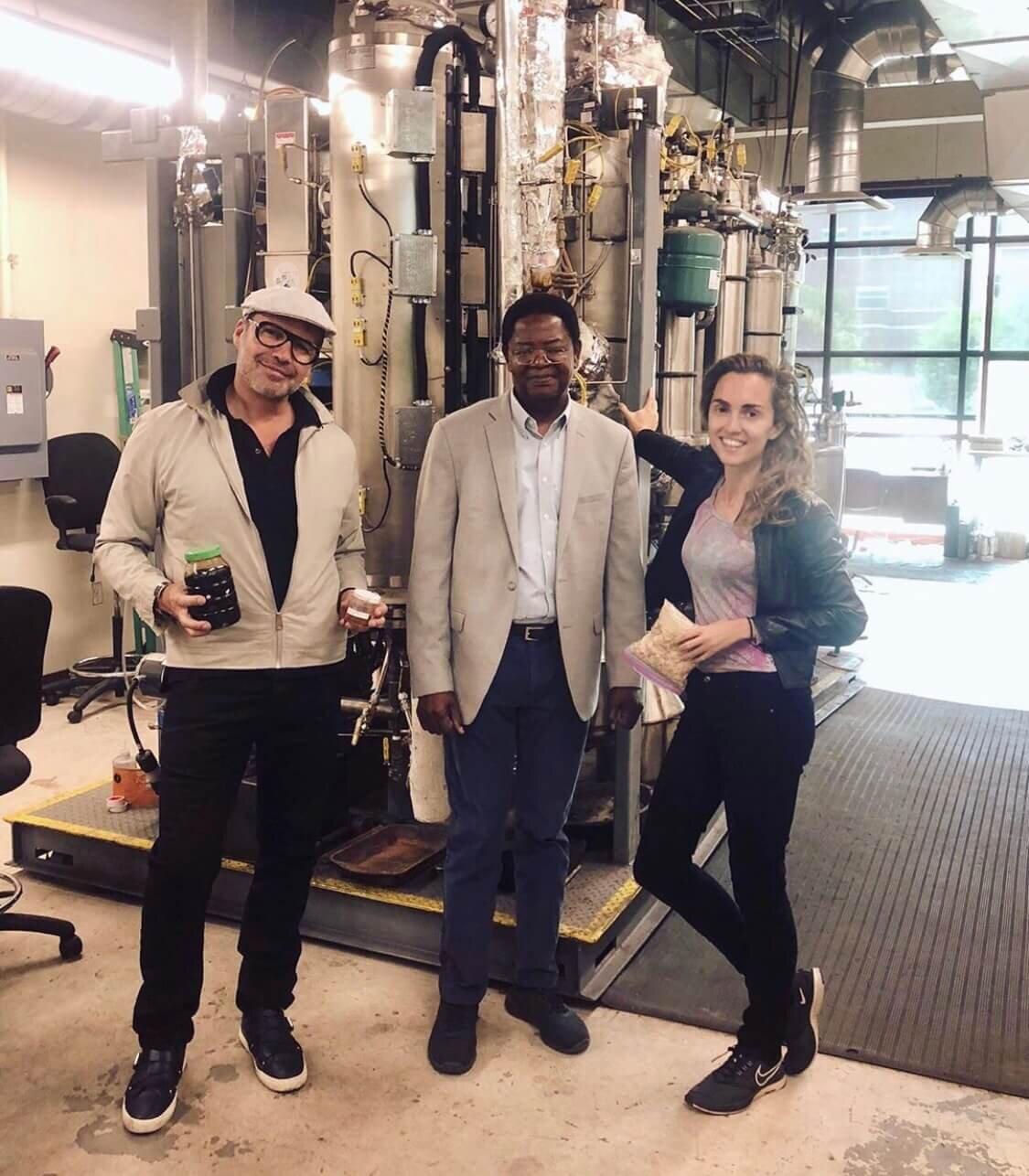Impact Investing
Written by Alessa Berg
Impact and sustainability questions are making the headlines across all industries.
What does “impact” even mean?
Depending on who you ask, this definition changes a lot. Investing with an angle on ESG, impact and sustainability is growing incredibly fast. It will eventually become the new mainstream framework to approach investments across all asset classes.
Yet, the confusion about what impact investing actually means does not help.
Our world is changing at unprecedented speed. Being skilled in this asset class is no longer just optional.
Having access to a global network in this sector is no longer optional, either. That’s why Top Tier Impact (TTI) exists. Across more than 45 countries, TTI is the leading ecosystem of investors, entrepreneurs and corporate leaders focused on solving the critical issues of our time.
Rethinking Investment and Social Impact
With the emergence of new technologies and a growing desire to invest ethically, many companies and entrepreneurs are driven to make a positive impact on society. In the past decade, investment as a discipline has evolved to answer the following question—How do we tie capital to the biggest environmental and social challenges? The solution—refocus decisions on the sustainability of investment opportunities.
As the value of investments extends beyond financial returns, many investors and fund managers consider investment strategies that generate social and environmental benefits.
Socially Responsible Investing (SRI) and one of its facets, Impact Investing, combine the aspects of capitalistic investment with social responsibility. While these two categories of investing have an overlap of social consciousness, there are also significant differences.
Socially Responsible Investments
Many companies adopt environmental, social and governance (ESG) practices to enhance traditional financial analysis. By now, most performance trackers and official data sources show how investments with a good ESG score can also drive superior capital returns.
Socially responsible investing is a strategy that incorporates ESG factors (ethical, non-financial) into decision-making. For instance, an SRI fund manager or investor can avoid an investment if it conflicts with their ethical guidelines. This could be anything from firearms and gambling to specific technologies.
The goal is to generate profits, but without harming society.
Impact Investments
In impact investing, achieving financial returns and doing social good go hand in hand.
Impact investing facilitates the flow of money to entrepreneurs who solve social problems in a profitable and sustainable way. The objective of an impact investor is to encourage a business or an organization - the ones that have “creating an impact” at the core of their company’s business - to accomplish their goals.
There isn’t a globalized standard to measure impact-related benefits yet. Among other frameworks, the United Nations’ (UN) Sustainable Development Goals (SDGs) act as a guideline for impact investors and help them decide where to allocate their capital.
In essence, impact investing aims to generate measurable social and environmental impact alongside financial returns. This beneficial tangible outcome is the key differentiator from Socially Responsible Investing.
The Impact of Climate Change on Businesses
Climate change has emerged as one of the world’s most pressing problems. The gradual shifts in policy regulation to fight this crisis and the global demand for environmentally responsible power solutions have steered innovators and investors to capitalize on this opportunity.
Cleantech and Renewables
Clean Technology (or Cleantech) is a term that refers to companies and technologies whose products, processes or services are driven to improve environmental sustainability. This includes solar, wind, energy storage, recycling and waste, geothermal, biofuels, as well as other green technologies that help in alleviating anthropogenic impacts.
Industries in cleantech are focused on reducing negative environmental impact and on improving the efficiency of renewable resources. Government backings, public enthusiasm and new business models have fueled venture capital funds into the cleantech sector.
Alternative Proteins, Sustainable Food and Agritech
Our current dependence on animals for protein - particularly through factory farming - has exacerbated planetary health risks at every scale.
Diversifying protein sources is the key to manage our reliance on animal-based food and to structurally shift the traditional livestock industry. The term ‘alternative proteins’ refers to plant-based and food-technology alternatives such as algae, insects, fermented proteins and cultured meat—to animal protein.
It is important to perceive the sustainable food industry through a broader context as it isn’t just about the food—it is also about how food is distributed, how it’s packaged and how it’s consumed.
Agritech plays a pivotal role in this ecosystem. It strives to improve the output efficiency of agricultural methods using technological innovations. A notable application is to grow more food from less space and using less water. This ‘agritech’ categorization also includes horticulture (“the art or practice of garden cultivation and management”) and aquaculture (“the rearing of aquatic animals or the cultivation of aquatic animals for food.”)
For those who aspire to lead an eco-friendly lifestyle, decisions are still based on convenience, taste and price. Choices in food consumption have the potential to disrupt the inefficiencies of livestock production and accelerate the sustainable food economy.
A Surging Focus for Banks and Funds
With governmental policies advancing and supporting impact investing, there continues to be a fast-growing range of investors entering the space. Impact investments are poised to continue bridging the gap left by traditional giving and mainstream investing.
In line with the UN’s SDGs, many banks are focusing on investing in businesses that address societal problems. Mainstream banks are entering the sector too. At the beginning of 2020, Citi announced their USD 150 million Citi Impact Fund to make investments in “double bottom line” private sector companies that generate a positive impact on society.
While many financial institutions incorporate ESG factors, it is not evident how much of their contributions are attributed to social good. Incorporating conventions and standards can provide a more meaningful analysis of funds. While many of these initiatives currently exist, there is still some way to go before constructing an industry benchmark.
Companies Investing With Impact
According to GIIN’s 2020 Annual Impact Investor Survey, the current market size of impact investing is estimated at USD 715 billion—and continues to rapidly expand in various sectors. At present, companies in the impact space are adopting multiple frameworks to test their investment approach and management practices.
As global momentum builds around a healthier work-life integration, many companies are shifting their focus to ensure business continuity while being fair to their employees. Millennials are rapidly gaining more equity in the market and companies have started emphasizing ethics, environmental impact and workplace wellbeing to gain trust and mitigate reputational risks. This value shift contributes to pushing even further the growth of impact investing.
Following the signing of the Paris Agreement in 2015, companies have been meeting increasing requirements from investors, consumers and employees on climate change. By end of 2019, one-quarter of the Fortune Global 500 had already made a public commitment to going carbon neutral, using 100% renewable power or meeting a Science-Based emission reduction Target (SBT) by 2030.
How Can You Get Involved?
Companies and investors that want to make a positive impact have the right intent, but oftenfail to identify the optimal approach.
With the impact investing space growing so rapidly, there are plenty of opportunities to contribute across its various areas. As an investor or an employer who is conscious about climate and sustainability, it is crucial to understand your options and build a network of expertise around this.
Adapting to this field comes with a fair share of intricacies, especially in choosing policies and frameworks. Nonetheless, impact investment organizations strive to provide a comprehensive understanding of impact industry trends to educate the community.
Top Tier Impact
In the years ahead, having tangible best practices in impact and sustainability (vs just adopting the basic hygiene factors) is what will make a difference for companies thriving in this new paradigm and investors achieving financial returns with measurable impact.
Across all activities, the mission of Top Tier Impact is to accelerate the global adoption of best practices impact and sustainability. We do this in areas that we consider systemically relevant to this paradigm shift:
TT Impact Network is our members-only community of impact investors, entrepreneurs and professionals around the world.
TT Impact Investing is our practice to screen investments into the most impactful funds and growth-stage companies.
TT Impact Policy bridges the gap between private sector expertise and public sector implementation of impact-related policies.




